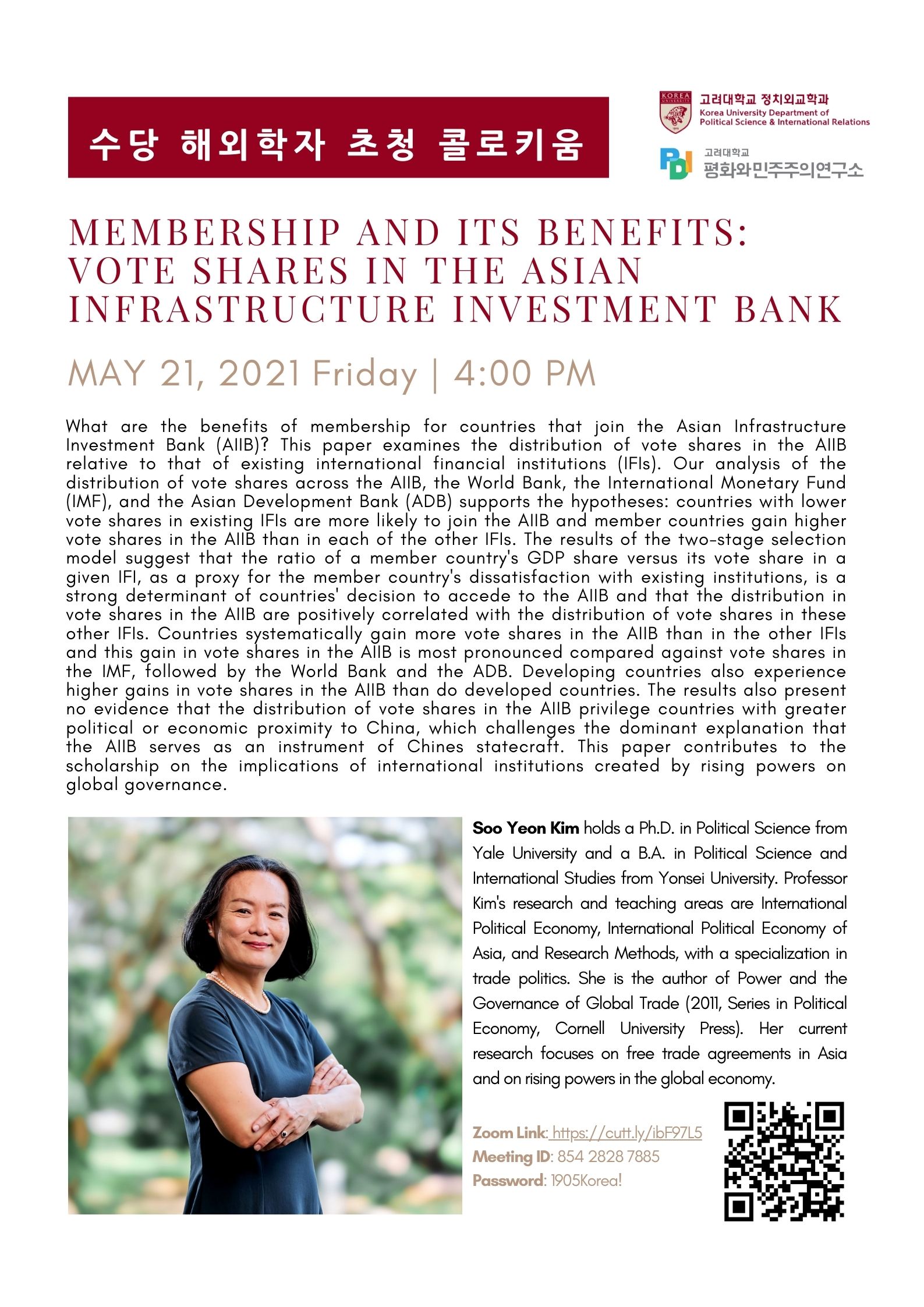
평화와 민주주의연구소는 정치외교학과와 공동으로 수당 해외학자 콜로키움을 개최합니다. 본 콜로키움은 온라인에서 진행하는 해외 정치학자 초청 강연 프로그램입니다. 2021년 5월 21일 금요일에 National University of Singapore의 Soo Yeon Kim 교수와 세미나를 개최할 예정이니 많은 분들의 참석 부탁드립니다. Soo Yeon Kim 교수는 "Membership and its Benefits: Vote Shares in the Asian Infrastructure Investment Bank (co-authored with Jesslene Lee)"라는 논문을 발표할 예정입니다. 많은 참여 바랍니다.
발표 : Soo Yeon Kim (National University of Singapore)
일시 : 2021년 5월 21일 (금요일) 오후 4:00
Zoom 링크 : https://cutt.ly/ibF97L5
회의 ID : 854 2828 7885
암호 : 1905Korea!
기타문의 : jamessuh3823@korea.ac.kr
Abstract: What are the benefits of membership for countries that join the Asian Infrastructure Investment Bank (AIIB)? This paper examines the distribution of vote shares in the AIIB relative to that of existing international financial institutions (IFIs). Our analysis of the distribution of vote shares across the AIIB, the World Bank, the International Monetary Fund (IMF), and the Asian Development Bank (ADB) supports the hypotheses: countries with lower vote shares in existing IFIs are more likely to join the AIIB and member countries gain higher vote shares in the AIIB than in each of the other IFIs. The results of the two-stage selection model suggest that the ratio of a member country's GDP share versus its vote share in a given IFI, as a proxy for the member country's dissatisfaction with existing institutions, is a strong determinant of countries' decision to accede to the AIIB and that the distribution in vote shares in the AIIB are positively correlated with the distribution of vote shares in these other IFIs. Countries systematically gain more vote shares in the AIIB than in the other IFIs and this gain in vote shares in the AIIB is most pronounced compared against vote shares in the IMF, followed by the World Bank and the ADB. Developing countries also experience higher gains in vote shares in the AIIB than do developed countries. The results also present no evidence that the distribution of vote shares in the AIIB privilege countries with greater political or economic proximity to China, which challenges the dominant explanation that the AIIB serves as an instrument of Chinese statecraft. This paper contributes to the scholarship on the implications of international institutions created by rising powers on global governance.



